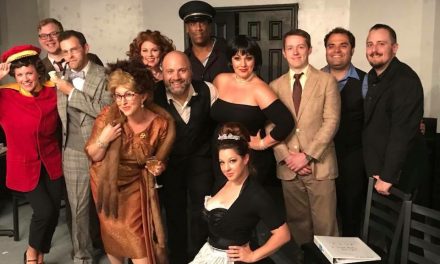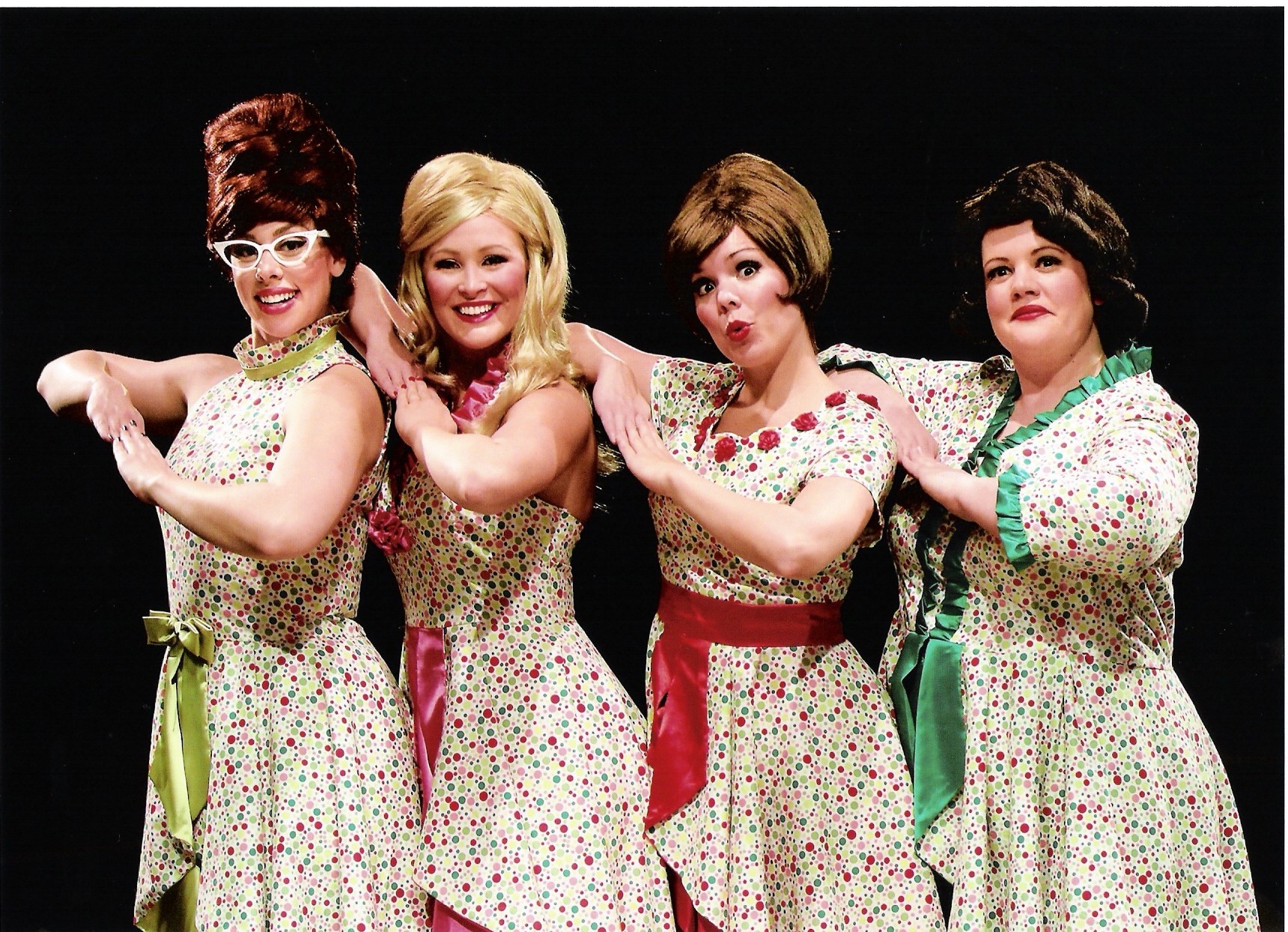Being the Executive Director of a not-for-profit arts organization is a tenuous position in the best of times. Being the Executive Director of two not-for-profit arts organizations – one of which relies heavily on support from the schools – in the decade of naughts is a position few would relish. Peter Holloway is the exception. Over the past four years, Holloway and the staffs and boards of directors of Stage One Children’s Theatre and Music Theatre Louisville have worked behind the scenes to merge these two historic entities into one taut organization: Stage One Family Theatre. When I spoke with Holloway about his vision for the future of Stage One Family Theatre, he assured me that vision has moved steadily away from the brink to being on the road to financial stability with the potential for substantial growth.
PH: Internally, we’ve finished the merger. Public perception might be a little behind that. I don’t know if many people are so aware of the transition yet.
SD: Let’s bring everyone up to speed. What was the impetus for the merger?
PH: The biggest reason for working to combine Stage One and Music Theatre Louisville as Stage One Family Theatre is business practicality. We were running two separate organizations with two sets of books, separate audits, different ticketing systems, etc., that unnecessarily complicated things when we do operate as one company. There’s only one staff that does everything, and the year just keeps turning from one production to another.
SD: Have you made any adjustments to the missions of the two organizations?
PH: Philosophically, we still want to deliver community-based programming for adults as well as year-round, age-appropriate children’s programming. You’ll see a little difference in the way we bring these shows to the public. While we will continue to present the musicals for which Music Theatre Louisville has been known all these years, we’ll be presenting some straight plays. For instance, next summer one of our shows will be Neil Simon’s The Odd Couple. I’m excited about that because it will be a lot of fun.
SD: What kind of feedback do you expect from your long-term patrons?
PH: I think folks who have been familiar with our MTL Broadway classics will still appreciate that. It is, of course, a non-musical piece; but that’s going to open the door for us to do some other things under the Stage One Family Theatre brand that folks would like to see. So you may see other things from us in coming seasons, such as To Kill a Mockingbird or Inherit the Wind – some of the classic American plays that, in our opinion, aren’t being done enough. These are plays that you would probably want to see yourself as an adult. They are also plays you might want to experience with the young and soon-to-be young adults in your life because it’s a piece of American drama they should see.
SD: Traditionally, MTL productions have been staged between June and August. Are you planning to expand that schedule?
PH: We are considering a short run of Frankenstein, Sleepy Hollow or some other show appropriate to the Halloween season. One of the guidelines we will use for these productions involves the high school summer reading lists. It would be great to put a high-quality production of The Glass Menagerie or A Streetcar Named Desire on stage. I think audiences would enjoy seeing those as well.
SD: I agree. What else have you planned for the summer?
PH: It’s still a work in progress, but we plan to open the summer season with Joseph and the Amazing Technicolor Dreamcoat. We hope to bring musicians from the Louisville Youth Orchestra to play alongside professional musicians for an expanded, on-stage orchestra.
SD: How does that decision connect to the mission of your organization?
PH: As a community-based theatre, this alliance allows us to facilitate a mentoring opportunity for these young musicians. We’re also reaching out to churches in the community to build children’s choirs for the show. We expect to have a lot of kids from all parts of town participating.
SD: What’s coming up in the next couple of months?
PH: Number the Stars will open next. The book is widely read in grades 4 to 6. Many people will connect this in their mind with another book popular with this age group, The Diary of Anne Frank, that also deals with Nazi genocide. But this story is a little different in that it takes place in occupied Denmark and centers around Danish families helping their Jewish neighbors escape to Sweden. As the play begins, it isn’t yet clear that they are in danger, but things are beginning to add up.
SD: Of all the scripts out there, what brings this story to the surface?
PH: We regularly choose scripts in which the student actors are driving the action of the story. In this case, there are young girls between the ages of 12 and 14 who are working to save their friends. We have found it very successful when students are watching their peers on stage. They are much more engaged and interested when they see someone like themselves facing dilemmas, making difficult choices and facing danger. That’s exactly what you have in this story.
SD: What makes Number the Stars relevant to students today? The events in the play took place over seven decades ago.
PH: I don’t think we should ever forget things as awful as the Holocaust. It’s also important that we understand how easy it is for the public to be manipulated – out of fear, ignorance or self-preservation – into doing things they couldn’t imagine. We still see those kinds of issues today.
SD: Number the Stars is primarily for fourth- to sixth-graders. For the younger folks, you have Lyle the Crocodile coming up.
PH: Lyle is appealing to all ages, but grades K to 3 in particular love it. I promise adults will find it every bit as humorous. Lyle is a fascinating character – he’s a crocodile who lives in a house in New York City. He’s very sophisticated and gets along well with others. He manages to be a really strong character without ever speaking. It’s a lot of fun; people will enjoy it a lot.
SD: You direct a few plays for Stage One. Will you be helming either of these?
PH: I am not. Andrew Harris will direct Number the Stars, and I’m excited to see what he does. We have a fantastic set design and a really good team to work on that with him. Stephen Rahe, the education director at Actors Theatre of Louisville [formerly a member of the Stage One staff], will direct Lyle the Crocodile.
SD: What happens in the classroom before students see a play like Lyle the Crocodile?
PH: A lot of the titles we present are literary titles read at the schools, so we get a lot of input from teachers and administrators about what the students find most appealing. Based on that information, we create lesson plans that we share with the schools. There are a lot of ways teachers can connect the show with the classroom either before or after attending. We also offer pre- and post-show discussions for teachers to take advantage of.
SD: How many public [non-school] performances would Stage One typically give of a show like Lyle the Crocodile?
PH: Well, that’s an interesting question. We have a little different model than works for most of the very successful children’s theatres. Most are based on public performances. Ours, on the other hand, is comprised mostly of school matinees. Until a few years ago, we had more public performances than we do today, but attendance was light. I decided I would rather do fewer performances and fill them up. Over the past few years, we’ve dramatically raised the attendance so we may be able to add a couple in.
SD: You have also increased attendance at the school matinees.
PH: We introduced a program last year called “Play It Forward,” part of our reworked business model. We decided we would take some of the dollars we’ve received as gifts from individuals, foundations and corporations and convert them into what we would call underwriting.
SD: What prompted you to revise your business model?
PH: There wasn’t much choice. Not only were we struggling financially, but we were seeing a decrease in the number of kids who were able to see the shows. Stage One is a gateway into the arts in this community, and I feel it is really important for the kids to be able to come to our productions. Last year we decided to make kindergarten, first grade, fifth grade and sixth grade “no cost” to the students. We made it so that all they have to do is get to the theatre and we saw a dramatic jump in attendance – from 45,000 to 80,000 kids. The counterpoint to that is it becomes a disincentive for families to attend since the kids have probably seen it. So when I mentioned before that we may do a Halloween show, or some of these other classic American plays, they will be on a limited run with fewer student matinees to give people the opportunity to come as a family.
SD: How have your donors responded to this program?
PH: They’ve been great. In a tough economy like we have right now, most people are very sensitive to the fact that both the arts and schools are suffering. Sadly, it’s the arts that are cut first at the schools when resources are being triaged. Attending one of our performances is an opportunity for the schools to meet some of the curriculum-based requirements – and it doesn’t cost them anything beyond transportation. Additional funding will allow us to open the program up to grades 2, 3 and 4 this spring. It’s a great statement for our community to be able to make: Every student in the area, grades K to 6, will have the opportunity to attend a show at no cost.
SD: What will that mean in terms of attendance?
PH: We have about 15,000 kids in each grade level in the Metro if you include public, private, home and parochial schools on both sides of the river. About two-thirds of those students have been coming under this program. I’m assuming those numbers will hold for grades 2 to 4 and bring our total attendance to about 110,000 students annually.
SD: That makes Stage One Family Theatre one of the biggest arts groups in the Metro.
PH: Without question. Last year we were the single largest user of The Kentucky Center – by a substantial margin – without ever going into Whitney Hall! That’s exciting!
SD: I know you have other ideas percolating. Are any of them ready to be shared?
PH: Well, I am looking for more partnership opportunities like the one I described with Joseph and the Amazing Technicolor Dreamcoat. I could see us doing Oklahoma! in partnership with the Louisville Ballet so that we could add the Agnes de Mille classic ballet dream sequence into the production. Perhaps we could find a way to work with the Thoroughbred Chorus; imagine having them as the Seabees in a production of South Pacific. I would love to figure out ways to pull a few of the arts groups together for one weekend a summer and do a big musical in the right venue.
SD: What else have you planned for this summer’s season?
PH: Right now we’re looking at presenting a dinner theatre production in the Horseshoe Casino showroom.
SD: And, of course, auditions for all of this are just around the corner.
PH: Yes, we will be casting our productions in March. So we encourage anyone who wants to be part of what’s happening to prepare your one-minute monologue and 16-bars of music. If you don’t want to be on stage or work with us backstage, there is plenty of room in the audience. We are very proud of the place we’ve achieved in this community. Over the past 65 years, Stage One has seen a lot of changes. But we’ve hit a real growth spurt over the past two years, and I am excited about what we are poised to accomplish.
For more information about the new Stage One Family Theatre and upcoming performances, you can go to their website: www.StageOne.org. Tickets are available through The Kentucky Center box office at 502.584.7777 or 800.775.7777.





